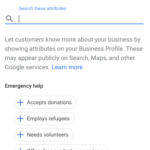Stay Ahead of Marketing Compliance Issues with a Mortgage CRM

As a mortgage broker or loan officer, you want to make sure that you share current deals with your clients. You need to be on the hunt to grow your customer base. What better way to do that than using marketing designed to attract new clients? When setting up new advertisements, also meet local laws and regulations. The best way to do this is to invest in customer relationship management (CRM) software.
What Is a Mortgage CRM?
A mortgage CRM helps mortgage brokers and loan officers run their front-end operations. It also allows companies to manage relationships with their prospective and existing customers. A CRM helps manage and grow customer relationships across the entire client lifecycle. It’s an opportunity to build brand equity, improve satisfaction, and make more sales.
Why Is a Mortgage CRM Important?
Mortgage professionals must understand the risks associated with breaking regional and federal laws. A powerful mortgage CRM can help professionals stay within regulations. Managing the customer relationship life cycle is essential for staying ahead of competitors. A mortgage CRM helps mortgage professionals protect their business while increasing clients.
While compliance is substantial, so is understanding sales productivity. CRMs can notify you when to send a follow-up email. They allow you to track deals through the sales pipeline. A CRM can also identify new sales opportunities. Once you have started a sale, the CRM can provide you with reporting tools. These tools show where your leads come from and how much you have sold.
A mortgage CRM can increase your standard of service and support. You can build distinct customer profiles that include preferences and location information.
The CRM will notify you of churn risk and customer sentiment. This way, you can build up your customer relationships. The CRM can offer survey features for keeping track of how satisfied customers are. Mortgage brokers can also check ratings and show professionals the patterns.
What Are Some of the Regulations a Mortgage CRM Should Manage?
Privacy and data protection are essential to customers, and regulators recognize that. Thus, many laws are in place to limit the types of contact that marketers can use. Some regulations only apply to the mortgage lending industry. Specific compliance measures that a mortgage CRM software solution should include are:
1. Respect for Consumer Preferences and Privacy
A robust mortgage CRM software should include options to manage consumer preferences. There should be options to manage data privacy. Several laws give customers the right to limit spam and notifications. A few of these laws include:
- CAN-SPAM Act: Requires ability for customers to opt-out of email notifications
- Telephone Consumer Protection Act (TCPA): Customers can ask not to receive phone calls
- California Consumer Privacy Act of 2018 (CCPA): Personal informational and is not saved
Each one of these regulations gives consumers more control over advertisements. A robust mortgage CRM solution can ensure that clients’ requests are well-managed, allowing mortgage professionals to respect relationships with customers.
2. Approval Process for Marketing Materials
Some workers may be in charge of making marketing materials for potential customers. A specific person approves the roll-out of the advertisement. The official should have an understanding of the regulations related to marketing materials. They should only support those items that follow the rules.
A CRM can help the process by allowing for custom rules related to marketing materials. Professionals send finished advertisements to a designated approver in the mortgage company. Once approved, the company releases them for distribution.
3. Track and Audit Communications
Any mortgage CRM software should let marketing managers track the performance of ads. This ensures messaging remains on topic. The CRM can also watch the effectiveness of the communications sent. If a marketer sees that an advertisement doesn’t have the right effect, they can make adjustments. The marketer can adjust the poor-performing marketing communication or create a new one.
People who oversee compliance with regulations may audit companies. These regulators can ask to see evidence of communications a company sent. This may occur if a customer complains or by chance.
Regulators encourage companies to follow current laws through their audits. If a company is not following those laws, it may receive fines or other penalties. Having a mortgage CRM that tracks marketing communication can be helpful, and this is especially true if regulators audit the company.
4. Standardization of Disclosures and Legal Statements
Mortgage companies must include disclosures, NMLS numbers, and other licensing information in advertisements. A mortgage CRM can ensure that ads have legal disclosures and licensing information. Once a program includes disclosures, brokers and lenders can apply it to messaging.
Some larger companies operate in many areas with different laws. Such companies may need information about each of their locations. Marketing professionals can work with their lawyers to follow laws and regulations. They can then insert disclosures into all communications in these locations. This is especially important for automated messages sent to potential and existing clients.
5. Meet Equal Credit Opportunity Act Requirements
Mortgage brokers and lenders are not allowed to send marketing materials that discriminate. Discrimination can occur between those who have good credit and those who don’t. Marketing materials must be available to anyone who wants to know about a new home, and this should happen regardless of their credit.
The Equal Credit Opportunity Act (ECOA) keeps lenders from discriminating against credit applicants. No lender can deny a borrower based on discriminating factors. A CRM solution can send alerts if materials don’t follow the rules.
6. Meet Fair Housing Act Rules
The Fair Housing Act (FHA) prohibits discrimination by providers of housing. This includes landlords, real estate companies, and lenders. Under the FHA, providers can’t deny housing based on prejudice. Discrimination includes race, religion, sex, national origin, familial status, or disability.
If the Justice Department becomes aware of potential discrimination, they may file suit. Such a suit can have terrible results for the mortgage broker or lender. Having a powerful mortgage CRM software solution can help. The CRM can maintain a fair balance in marketing communications. It can suggest images that prove a company’s commitment to diversity.
7. Compliance with Real Estate Settlement Procedures Act (RESPA)
Any mortgage broker or lender must follow RESPA. This act prohibits the use of kickbacks for referrals of business. It prohibits loan officers and real estate agents from compensating one another. Yet, in reality, most lenders and agents depend on each other for the company. A mortgage CRM that meets RESPA can help ensure effective compliance. It can do this by balancing the needs between marketers and customers.
Under RESPA, loan originators must give borrowers a good-faith estimate of loan terms. This estimate must also include closing costs. Compliance with RESPA is mandatory for mortgage brokers and loan officers.
8. Adhere to APR Requirements
Whenever interest rates are in an ad, the annual percentage rate (APR) is, as well. APR requirements help protect consumers from any misleading interest rate quotes, and quoted interest rates must include an APR.
A mortgage CRM can help mortgage lenders and brokers meet the APR requirements. Marketing materials that go through the CRM must contain an APR in the same size and format as the quoted rates. These rules include matching the size, style, and location of the APR and quoted rates. While most CRMs will calculate the APR, users should be able to reconfigure it if it does not appear to be correct.
How Can Using a Mortgage CRM Benefit Real Estate Professionals?
A mortgage CRM software application can do a lot for professional mortgage brokers. These software solutions can help mortgage brokers, and lenders save time. They increase efficiency and help companies follow regulations that govern the industry. They can boost lead generation, allowing a company to grow its clientele.
The analytics and reporting modules allow users to review marketing performance. Users can make adjustments to engage more customers. The CRM helps real estate professionals stay in line with the laws and regulations.
A mortgage CRM allows you to store and organize your client data. In turn, this makes it easier to stay in touch with clients. You can give them quick updates on the loan process. You can also update them about new mortgage rates and housing trends.
A CRM software solution helps your company be more efficient. It can manage regular tasks like employee scheduling and managing contracts. There are a lot of great features included in a CRM.
How Can BNTouch Help Mortgage Brokers and Lenders?
BNTouch is a mortgage CRM designed for real estate professionals. It gives users the ability to automate their marketing and convert more leads. Professionals can also stay top of mind with borrowers and recruit new partners. The CRM includes a digital loan platform designed to improve the borrower experience. This platform provides digital document management and in-processing updates.
Reach out to BNTouch today for a free demo of our mortgage CRM software!
The post Stay Ahead of Marketing Compliance Issues with a Mortgage CRM appeared first on .



